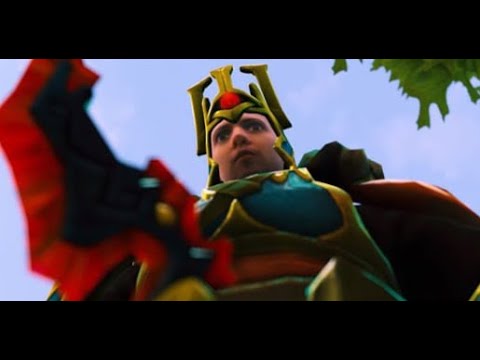In the often-glamorous world of live streaming, where enthusiasts transform passion into profession, there occasionally emerges a voice that challenges the very premise of their trade. Vitaliy “Papich” Tsal, a prominent figure in the Eastern European streaming landscape, has recently offered a rather stark, almost philosophical, take on his relationship with competitive video games, particularly Dota 2. His insights aren`t merely a casual complaint; they represent a deep-seated discomfort with the genre, a sentiment made all the more intriguing by the fact that he`s currently playing Dota 2 under a substantial contractual obligation.
The Philosophical Underpinnings of Discontent
Papich`s philosophical journey into competitive gaming, as he recounts, began as early as 2017. It was then he concluded that a serious approach to team-based competitive titles was fundamentally incompatible with his psyche. His primary contention? The perceived unfairness and the constant presence of disruptive players, colloquially known as “ruiners,” who actively impede fair play. “How can you compete,” he muses, “if you are constantly in disadvantageous conditions? Someone will always try to `snipe` [ruin the game].”
“I decided back in 2017 that I would never be able to take team games seriously in my life. I became a streamer – streaming competitive games started to annoy me… It`s just not for me.”
This isn`t born of psychological trauma, he insists, but rather an “acute sense of justice.” When a game feels rigged, or when fellow players deliberately sabotage the experience, his inclination to “tilt” (become frustrated) is, for him, an uncontrollable and entirely rational response. He firmly believes that multiplayer environments, no matter how engaging, will always find a way to be “ruined” by others, making the search for genuine motivation utterly futile.
Dota 2: A Special Kind of Torment
While his critique extends to all competitive multiplayer titles, Dota 2, in particular, seems to be a crucible of his discontent. “With Dota,” Papich laments, “everything… the universe itself is against it.” He openly admits to disliking the game, acknowledging his lack of skill, and compounding this with its team-based nature and the added pressure of streaming. This confluence, he suggests, creates an insurmountable barrier to success or even genuine enjoyment.
The irony here, of course, is palpable: a streamer, renowned for his strong opinions, now finds himself bound by contract to broadcast his struggles in a game he fundamentally despises. His current Dota 2 rank, Knight III, with a mere 1939 MMR and a notably low 32% confidence rating from the system, serves as a digital testament to his professed discomfort. It`s almost as if the algorithm itself is subtly nodding in agreement, confirming his internal struggle.
The Streamer`s Dilemma: Passion vs. Contract
This situation spotlights a unique dilemma faced by content creators: the negotiation between genuine passion and financial pragmatism. Papich, transparently stating he plays Dota 2 “for money,” is obligated to conduct at least 14 streams of Valve`s popular MOBA over two months. While he acknowledges that it`s “impossible to refuse” a significant financial offer, he maintains that “deep down, you still understand that it`s not yours.”
Papich`s Core Grievances with Competitive Streaming:
- Perceived unfairness and constant “unfavorable conditions.”
- Presence of disruptive players (“ruiners”).
- An “acute sense of justice” leading to intense frustration (tilt).
- Fundamental dislike for specific games (e.g., Dota 2).
- The pressure of streaming exacerbates existing issues.
This isn`t merely about fulfilling an obligation; it`s about publicly enduring an activity that goes against his core gaming philosophy. It presents a fascinating, if somewhat uncomfortable, spectacle for his audience: watching a professional navigate a digital landscape he views as inherently flawed and personally unfulfilling.
Beyond Papich: A Universal Sentiment?
Papich`s candid reflections resonate with a sentiment likely shared by countless gamers. The frustration with toxic players, the desire for fair play, and the psychological impact of perceived injustice are not unique to high-profile streamers. His “philosophy” inadvertently highlights a broader discourse within online gaming communities: how do we reconcile the competitive drive with the prevalent issues of griefing and unsportsmanlike conduct? For many, the joy of victory is often overshadowed by the bitterness of a “ruined” match, making single-player experiences a sanctuary, much as Papich describes.
Conclusion
In an industry often characterized by manufactured enthusiasm, Papich offers a refreshingly unvarnished perspective. His current journey through the ranks of Dota 2, driven by contract rather than conviction, serves as a poignant, and perhaps even darkly humorous, commentary on the realities of professional content creation. It`s a testament to the fact that even for those earning substantial sums, some games simply aren`t “theirs” – regardless of the pay cheque. His story, therefore, isn`t just about a streamer`s complaints; it`s an intriguing exploration of personal integrity, the relentless demands of a contract, and the enduring quest for enjoyment in a sometimes-hostile digital world.









